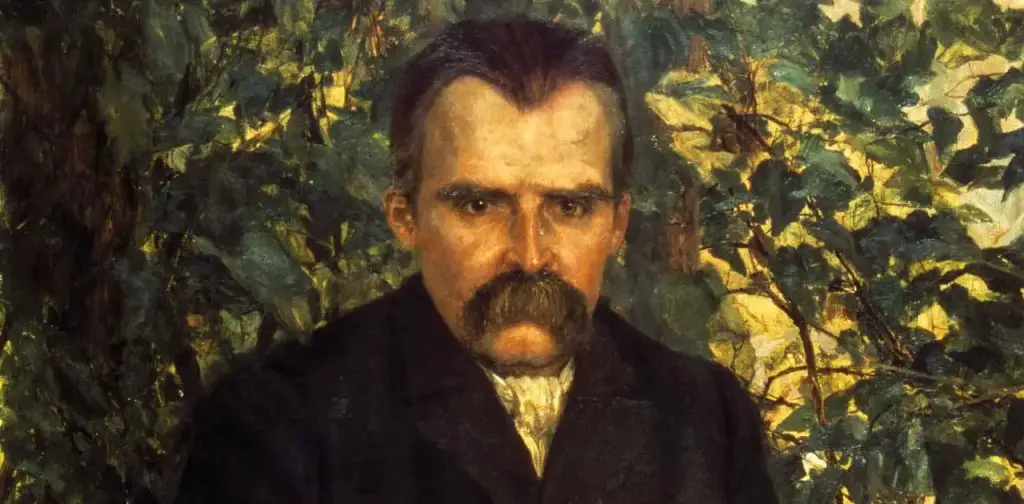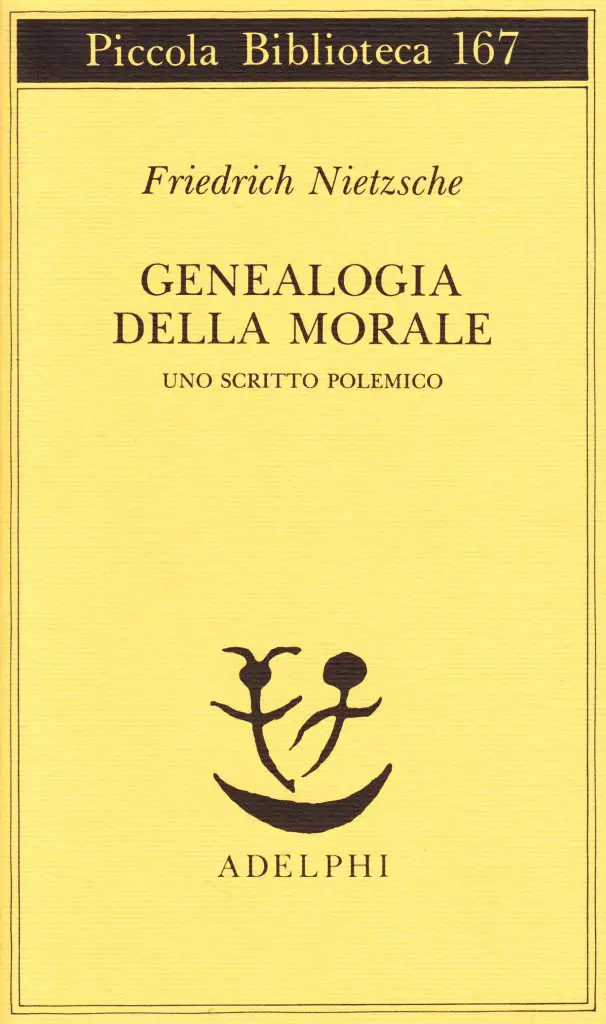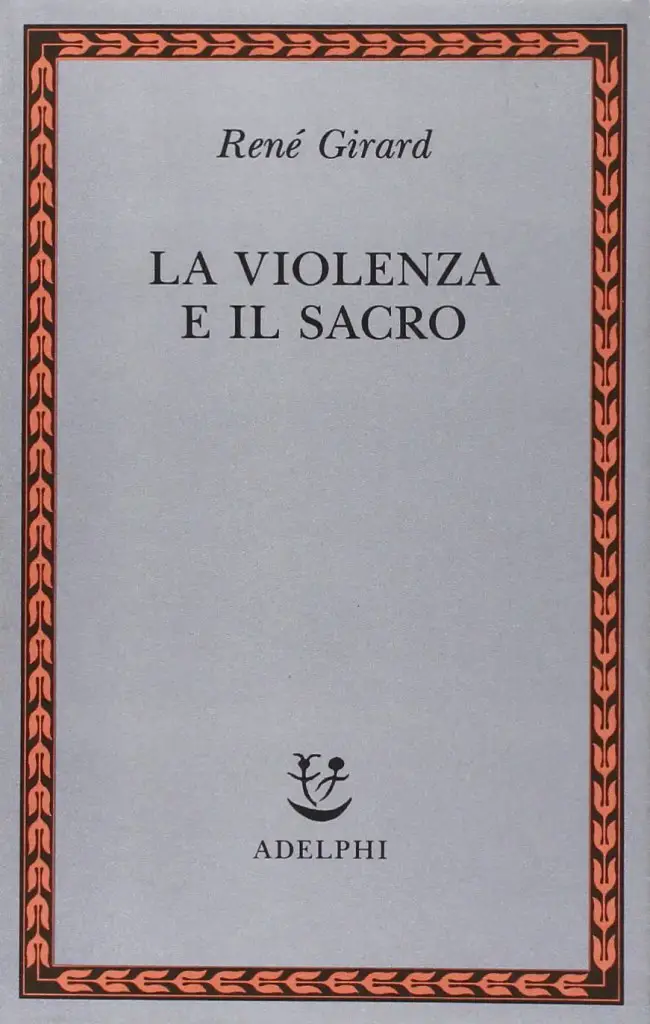A comparison between «archaic sacrificial wisdom» and «Judaeo-Christian demystification» in Genealogy of morals di Nietzsche in the light of the reading of René Girard, centered on the supposed original sacredness of the so-called «victim mechanism» in archaic societies.
di Lorenzo Cerani
Beyond the innocentizations to which she has been subjected ideologically in France and elsewhere [1], the work of Nietzsche it still stands out on the philosophical scene today in all its radicalism, offering itself to the gaze of the attentive reader who leafs through its pages to seek inspiration. Too often his theoretical legacy has been praised by the wrong interpreters, he argued with convincing arguments René Girard (1923-2015), converting him to the anti-religious scholasticism in vogue in the twentieth century and fetishizing him as a precursor of philosophical atheism and criticism of metaphysics.
With too much carelessness we have tried to bring Nietzsche back into the enclosure of the most superficial interpretations, describing the trajectories of thought starting from the most outmoded vulgates in the name of clichés such as "weak thinker", "vitalist", etc. Rejecting the aspects less compatible with the Zeitgeist, Girard argued in a volume written together with his student Joseph Fornari [2]Nietzsche thus became a safe haven for the philosophical critique of the Judeo-Christian religion, an iconic author for his lashings at bourgeois morality and embalmed in a rigidly anti-metaphysical and materialistic posture.

Il Nietzsche removed, for Girard, would result sacrificed and expelled as an expiatory victim by the philosophical culture who would like to follow in his footsteps too closely, tracing his theories and emulating his positions without knowledge of the facts, forgetting his intuition of the exceptional nature of the religiosity expressed in the Holy Scriptures. It is precisely this Nietzsche suppressed and discarded by the interpretations prevailing to this day that it would be a question of re-evaluating, showing the gray areas and the intimate lacerating contradictions that shed new light on the path of his thought, highlighting its unfathomable abysses to be recovered for analysis philosophical.
Under Girard's lens, the unfathomable abyss triangulated by Niccian speculation in its flashes of genius is one with sacred, with the liminal experience of the systemic social crisis that affects a community by tearing it apart and shaking it to its foundations to end up with the bloody sacrifice of victims that appease this irrepressible force. The sacred which coincides, again according to Girard, with the violence unleashed within a community as a result of the disappearance of the system of differences which regulates interpersonal relationships between the various social groups of a human consortium and which finds an outlet in a double transference (of aggression on the victim and of deification on his corpse once the sacrifice has been completed) capable of reconciling society [3].

Nietzsche would thus prove to be even an author with a theological attitude (in Girard's reading), in his attempt to explain the phenomenon of religion via negationis sharply criticizing Christianity as not quite in line with the Dionysian cult of antiquity and unable to adhere to the brutality of life, unfit for violent sacrifice. By hurling arrows at the bourgeois Jewish-Christian faith of his time, he would demonstrate by that very fact that at the bottom of archaic religion, as can be seen by examining the Bacchic cults of the Greek world, rests a savage violence that has never completely subsided and is always thirsty for the blood of new victims.
For the brilliant philosopher of Röcken, in fact, Christianity is supremely dangerous due to its exceptional character: as he will write in Genealogy of morals [4] its most characteristic cipher would consist in theinversion of the God-Man sacrificial relationship, in making it possible for Nietzsche's astonished eyes to believe in explicit rejection of the primitive violent sacred, a religion that demystifies and rationalizes the sacred by denouncing its violence and rehabilitating the victims.

Nietzsche, on the other hand, throughout his entire itinerary of thought and despite very strong ambiguities that cross his conscience (as shown by his double judgment on the Parsifal Wagnerian, notes Girard) interprets the archaic wisdom, of the primitive sacred which from Girard's interpretation coincides with a more exalted philosophy of violence, like a cogitation that celebrates brutal force.
If it is true that the epic poem ofIliad, as he considered the Because [5], quintessential reflection of antiquity on the strength in its depersonalizing value, in its inhuman character, Nietzsche dreams of immersing himself, ecstatic, in the clash of the gladiatorial arena of existence, accepting its ruthlessness to the extreme.
Against the recovery, hoped for by Nietzsche, of a decisive comeback of the most remote archaic religiosity, based according to Girardian analyzes on the cult of violence sublimated into deified scapegoats once their collective stoning is over, on the other side of the fence would be Christian anthropology and its non-violence, a conception of man antithetical to the archaic sacred [6].



Moving, in fact, from a peculiar hermeneutic of his famous and much misunderstood aphorism on the announcement of God's death, Girard can throw a glimmer of light in the direction of his theories on religion and anthropology, showing how the law that has broken which the apophthegm deals with refer to victim mechanism, to its deconstruction as a result of the cultural influence of Christianity in the ancient and modern world.
The loss of the center and the sense of restlessness felt by the mad man who announces the death of God cannot be explained starting from the existentialist and atheistic prejudice for which Nietzsche is here showing the secularization of the masses and the emasculation of the creed ahead of his time , how much why sociologically, as a result of the Christian revelation, it is no longer possible to resort to the victimary mechanism.
Starting from the cultural significance of Christianity which radicalises intuitions already present in Jewish culture and in the Old Testament, in fact, the idea of the sacred of traditional peoples emerges transvalued, giving rise to the fully modern phenomenon of the "concern of the victims" [7] which everywhere, precisely on the basis of these cultural roots, are subtracted from the shadow cone of myth (which for Girard represents the self-description made by the community of the massacre of the victim) as well as texts of persecution (descriptions of violence against expiatory victims but less cryptic and non-presenting like the transference myths of deification) and brought to the critical attention of all.

If the sacrificial wisdom of archaic cultures does not pose the problem of sacrificing victims as needed, expelling them from the human assembly in order to cement social relations and protect them from the entropic erosion of increasingly contagious violence, on the other hand the Judeo-Christian religion thus inaugurates a different relationship between man and man, a different philosophical anthropology that replaces the violent logic based on the imitation of social models (which for Girard are quick to become rivals according to the trend of double bound of Batesonian memory) the imitation of the only non-rivalry model: Jesus Christ.
On the one hand, Girard continues his analysis, we should locate a philosophical-religious reflection which feeds on unwitting victims and which finds its most sincere formulation in the at times obscure philosophy of Nietzsche (in this regard one could humbly recall when the thinker German proposes in Will to power to go back to human sacrifices); on the other hand, once this vision of things has frayed as a result of the Christian revelation, we would have the alternative of reconciliation and love for others, defusing the mimetic character of human behaviour.
As Girard will write in a later text [8], it is precisely the renunciation of the assumption of the truth of Christianity that risks leading humanity to seek a panacea from its conflicts in an expiatory violence on an ever increasing number of victims on which to erect a more fragile social framework than the previous one, because by now the archaic sacred with its cultural rites has ended up giving way to the (Christian) awareness of the sterile nature of violence and sacrificial solutions are no longer decisive.



A violence which, Girard always argues, never ceases to bewitch men because they are intrinsically mimetic, characterized in their hominization by a camouflage surplus compared to animals passable to lead to violence in unspeakable proportions: Nietzsche himself was bewitched by imitating his rival Wagner to levels of internalization that drove him mad [9].
Another violence that, in the aforementioned volume, leads naturaler ad a the theologization of war which assumes the appearance of total war in human history gradually disengaging from legal justifications of any kind and with the phenomenon of terrorism which represents another incarnation of that tendency to the extreme in the sense of an infinitisation of violence which inevitably tends to reproduce itself if indulged.
In the background, motionless waiting for us, the Apocalypse coincides with the risk ofhuman self-extinction prior to the non-acceptance of the radical crisis of the archaic sacred model in which bloody sacrifices were officiated (which in these terms, having lost their effectiveness, would lead to theself-sacrifice of humanity itself through technology) and the conversion to Christian anthropology, the only anchor of salvation.
NOTE:
[1] See M. Ferraris, Specters of Nietzsche. A human and intellectual life that anticipates the catastrophes of the twentieth century, Guanda, Naples, 2014.
[2] See G. Fornari, R. Girard, The Nietzsche case. The failed rebellion of the antichrist, Marietti, Genoa, 2002.
[3] See R. Girard, Violence and the sacred (1972), Adelphi, 2020, Milan.
[4] See FW Nietzsche, Genealogy of morals. A polemical essay (1887), Adelphi, Milan, 2018.
[5] See S. Weil, Greece and pre-Christian insights (1953), Rusconi, Milan, 1974.
[6] See R. Girard, Of things hidden since the foundation of the world (1978), Adelphi, Milan, 2020.
[7] Ib., I see Satan fall like lightning (1999), Adelphi, Milan, 2017.
[8] Ib., Taking Clausewitz to the extreme (2007), Adelphi, Milan, 2008. 9 Ib., The Nietzsche case... quoted
